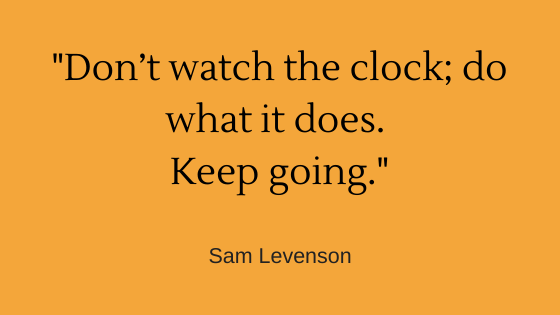- Do you find you are always starting and never finishing?
- Do you love the spark of an idea when it’s fresh and new, but loathe moving a project all the way through to completion?
You are not alone. In fact, a friend of mine just today told me that she is a “ignitor” or “spark” – not an implementor. She had a great idea to raise chickens. Who maintains the coop? Her husband. This friend has gone through a few career changes also and is in the midst of a beautiful change right at the moment.
So, what can be done?
First, love yourself as you are. Know that this is your strength. You are an idea person. The world needs you! So many people out there are “blah blah blah.” They go to work each day and power through life, barely looking up. They are so disconnected with themselves that new ideas don’t have chance. And you are NOT that person!
Why do we berate ourselves?
Society has a very strict agenda. You must do well in school, get your degrees (undergraduate then graduate, preferably) then go out and get a job. If you are an idea person, if you have a vision bigger than you know what to do with (or many, often all at the same time) – you feel odd, wrong, you don’t fit in…and The Traditional Path does not reward you. Time and time again we are told we “just need to…” and we fail. If this sounds familiar, I have got you!
Getting Back on “Track”
First, agree with your makeup. You are a superstar, ignitor, illuminator, and big idea person. You are an artist, a visionary, and you come up with “crazy ideas” all the time. What might happen if you allowed yourself to embrace these gifts??
Second, do create routines. Routines are not schedules. Routines create freedom. You have a routine whether you know it or not. Hitting snooze 3x and running is a routine. It is most likely not your outwardly desired one, yet, it is. What do you WANT the routine to look like? Play with it, keep it close (yes write it down!) and be okay with tweaking it. Do a routine in the morning and the night. It’s a game changer.
Third, outsource and externalize. You aren’t going to keep everything on track “in your brain”. In my next blog we will go through steps as to how to catch the butterflies and allow the beauty at the same time.
If you know you have AD/HD, this probably makes tons of sense to you. If not, you might notice something that sounds promising. Either way, if you procrastinate, get off track, or consider it “normal” to finish 80% of a project, stick with me as we are going to nail down some of the squirrels and smile all the way to progress!
In my next blog we will discuss the secret to getting things done – and the number one thing that holds us back!






